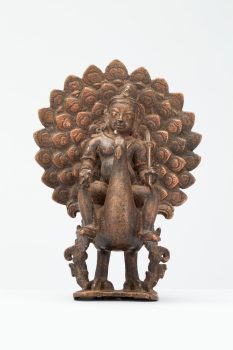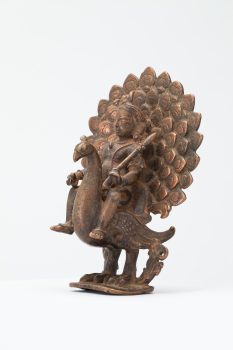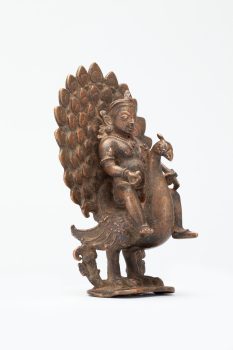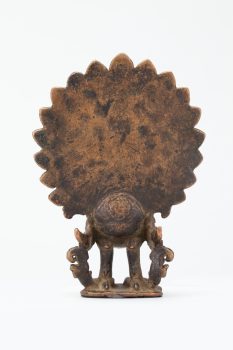Nepal
11th century




Nepal
11th century




A vehicle for the preservation and transmission of knowledge. The Buddha’s teachings were originally passed down through oral transmission and storytelling, and stories of the Buddha’s past lives are considered an important source of inspiration and guidance.
Hindu gods (deva) are thought to be manifestations of the absolute, or Brahman. The goddesses (devi) are considered manifestations of the Great Mother Goddess (Mahadevi), who is seen as the counterpart to Brahman.
The Himalayan kingdoms of the Kathmandu Valley were significant centers of Buddhist culture. Nepalese kings, Buddhist institutions, and ordinary people patronized the vibrant art guilds. The artistic traditions of the regions are well-known in Tibetan areas and beyond, and Newar artists have always been in high demand throughout Tibetan regions and Inner Asia.
Get the latest news and stories from the Rubin, plus occasional information on how to support our work.